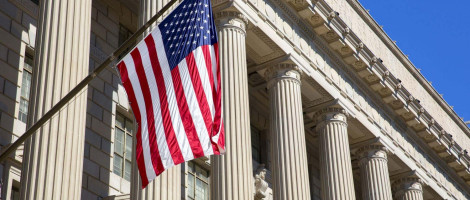Churches not mentioned in Gov. Greg Abbott’s Executive Order barring social gatherings
by John Litzler on March 19, 2020 in News

Editor’s note: This story has been updated to include a clarification from Gov. Greg Abbott following remarks made at a town hall meeting Thursday evening.
On Thursday, Texas Gov. Abbott issued Executive Order No. GA-08 (EO). The EO supersedes previous orders and preempts municipal ordinances regarding social/public/mass gatherings. An intended benefit of the EO is that it is supposed to eliminate the patchwork of regulations that had been in place as each city passed its own rules about social gatherings. The order states, "every person in Texas shall avoid social gatherings in groups of more than 10 people."
There has been confusion regarding whether or not the EO applies to churches and other houses of worship. The text of the EO seems to include churches by not listing them among the specific exemptions with grocery stores, gas stations, parks and banks. However, as part of a town hall Thursday night, Governor Abbott said the EO did not mention churches, "because there is freedom of religion here in the United States of America.” The Governor's comments, although not officially part of the EO, indicate that the state would not enforce the rules against churches and create a strong argument that churches are exempt from the no "more than 10" gathering rule.
Previously, some cities had mass gathering ordinances that include houses of worship, some cities had ordinances that exempted houses of worship, and some cities had no mass gathering ordinances at all. The EO is effective from March 20 – April 3, but specifically states it is, “subject to extension thereafter based on the status of COVID-19 in Texas and the recommendations of the CDC.” The EO does not specify the penalty for violating its orders.
With the exception of parks, the EO does not differentiate between indoor or outdoor gatherings. Some Texas municipalities had distinguished between indoor and outdoor gatherings. Several churches had planned to gather in outdoor settings this weekend for a time of corporate worship. While these gatherings could still take place in a park, it is unclear whether such gatherings in a church parking lot, for example, would violate the EO. Additionally, churches should be aware of other laws and regulations when planning outdoor meetings. Churches should be careful not to violate local ordinances when amplifying sound, copyright when projecting images and song lyrics, and Federal Communications Commission regulations when broadcasting over AM or FM radio. Additionally, in some municipalities, outdoor gatherings for worship at a park or venue not covered by the EO may require a permit.
The EO also addresses precautions for workplaces that remain open. This indicates that the offices of churches and other Christian organizations can remain open. However, those offices that do remain open should not gather in groups of more than 10. This likely doesn't mean that there can't be more than 10 people in the entire building, but if more than 10 people are in the same room, it would violate the EO. In explaining this rule over the past week, mayors have used the example of a hotel. It is not a violation for 100 people to stay in the same hotel, as long as they are in separate rooms and not a conference room together. It is likely that a "bullpen" situation or a room with partitions that don't go floor to ceiling would be considered all one room and a gathering of more than 10 people in such a room would be in violation of the EO. If a church/Christian organization has a staff or board of directors of more than 10 people, meetings should take place on conference calls by phone or a video communication platform (Zoom, Skype, google hangouts, GoToMeeting, etc.) to avoid violating the EO.
The purpose of this article is to help explain the legal ramifications of Executive Order No. GA-08 for churches and other Christian organizations in Texas. The full text of the EO and its applicability to other organizations can be found here.
Although understanding the law is of vital importance for church leaders, those leaders are also encouraged to consider how God would have them shepherd their congregation, honor governmental authority, and care for their community. Often, answering those questions can provide better guidance than a legal analysis.
Attorney John Litzler directs the church law division of Christian Unity Ministries in San Antonio. He also serves as a BGCT legal consultant to assist Texas Baptist churches in understanding various legal issues.
Disclaimer: This article provides general information and a general understanding of the law and does not constitute specific legal advice. By utilizing the Texas Baptist website, you understand that there is no attorney/client relationship between you/your church and the author or between you/your church and the Baptist General Convention of Texas. This article should not be used as a substitute for competent legal advice from a licensed professional attorney in your state with the specifics of your situation.
Strengthening a multiplying movement of churches to live out the Great Commandment and Great Commission in Texas and beyond.
The ministry of Texas Baptists is made possible by giving through the Texas Baptists Cooperative Program, Mary Hill Davis Offering® for Texas Missions, Texas Baptists Worldwide and Texas Baptist Missions Foundation. Thank you for your faithful and generous support.
Subscribe to receive stories like this one directly to your inbox.
We are more together.
Read more articles in: News, COVID-19
More from John Litzler
- Developing an emergency operations plan for your church
- Governor Abbott announces end of mask mandate and other COVID-19 policies
- Churches Weigh Options as Important Nov. 16 Deadline in Boy Scouts Bankruptcy Approaches
- Governor Abbott issues facemask order among other changes
- Paycheck Protection Program Flexibility Act eases loan forgiveness restrictions